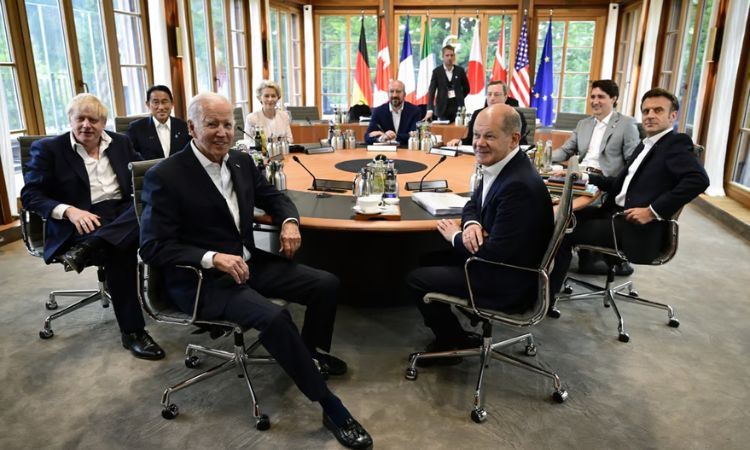Group of Seven (G7) Leaders countries are expected to discuss China’s use of “economic coercion” in their joint statement during their summit in Hiroshima, Japan on May 19-21. The statement is likely to be paired with a broader written proposal on how the G7 countries will work together to counter economic coercion from any country, with a specific section on China.

The statement will include a list of concerns about China’s behavior, including economic coercion. The G7 members plan to issue a separate economic security statement to address the tools used to counter coercive efforts from any responsible country. The statements are expected to be more direct than prior G7 statements on China.
The Biden Administration’s Focus on China
US President, Joe Biden, has placed significant attention on China as a crucial element of his foreign policy. His ultimate goal is to prevent the complicated and competitive relationship between the two nations from escalating into an open conflict, particularly concerning Taiwan. The G7, comprised of Canada, France, Germany, Italy, Japan, the United Kingdom, and the United States, has a strong economic bond with China, as it is the world’s largest exporter and a critical market for many companies in these seven countries.
China recently referred to a statement by the G7 foreign ministers, which addressed similar issues, as “replete with arrogance and prejudice against China.” They filed complaints with Japan, this year’s G7 host. During President Donald Trump’s time in office, G7 statements often provided only brief mention of topics involving China. However, under the Biden administration, there is a strong push for more direct and precise statements.
While the summit is underway, negotiations continue regarding the specific language to be used in the joint declarations of the leaders, which will be released once diplomacy and adjustment have been applied.
G7’s Common Approach to China
The upcoming G7 summit presents a challenging test of the participating nations’ ability to forge a consensus on China, the world’s second-largest economy. As the talks progress in Niigata, Japan, the issue of China has emerged as a crucial topic of discussion among the G7 finance leaders. The ongoing deliberations have chiefly centered on measures to reduce their respective countries’ “over-reliance” on Chinese manufacturing, with an emphasis on collaborating with low- and middle-income nations.
The US Wants to Get Something Hard on Paper
The United States of America desires to reach a documented agreement with regard to the Group of Seven’s shared approach toward China. Although the other G7 nations exhibit an interest in the matter, they are not as keen to jot down specific details regarding various instruments and economic statecraft tools. Certain G7 nations retain their doubt in consenting to restrictions on outbound investment toward China. These policies are being formulated, partly, to inhibit China’s military from gaining access to tools that could further their technological superiority. Numerous individuals in the Biden administration consider them as supplementary to export controls, which limit access to specific semiconductors with the same objectives.
G7’s Principles on China
Each constituent of the G7 will forge its own path with regard to China, however, there exist a set of principles that consolidate the G7 in a collective strategy toward China. On Thursday, Janet Yellen, the US Secretary of the Treasury, proclaimed that China had unequivocally employed economic coercion against Australia and Lithuania. The G7 leaders will also offer the possibility of further collaboration with China concerning subjects such as climate change. The US official stated that they are not advocating for the decoupling of the US and Chinese economies, but rather for the minimization of risk and the diversification of investments.
US Debt Ceiling Stalemate
The G7 finance convocation held in Japan was cast into the shadows due to the lack of advancement in the settlement of the US debt ceiling impasse. The planned assembly on Friday between President Biden and top legislators was deferred until early next week, as the Democrats and Republicans of Biden strive to reach a consensus to avert a calamitous failure to pay. Nonetheless, officials from the United States have projected that the commander-in-chief will participate in the two-day summit as intended, followed by excursions.
*Above image is taken from google.















